Diary from Gaza: 'There's no time to mourn anyone or anything'
You can help families in Gaza. DONATE NOW
Tuesday 24 October
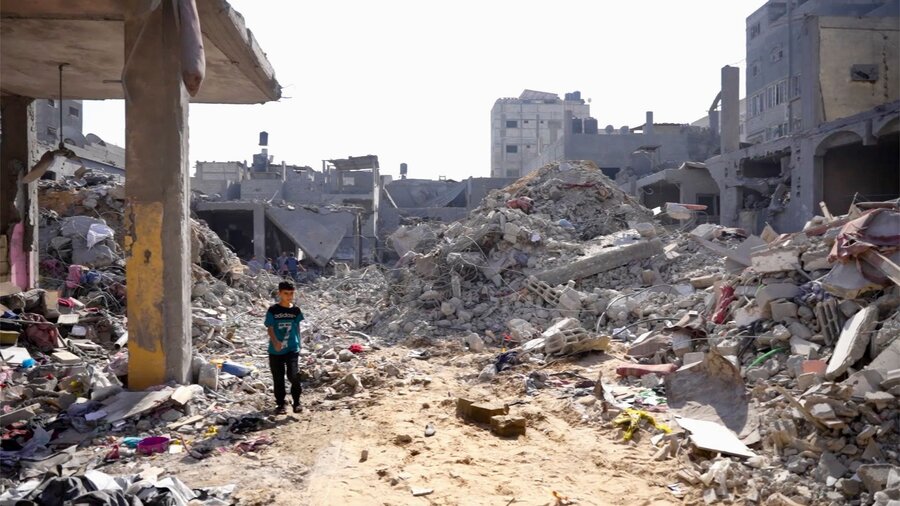
It’s already day 18 of this brutal war that has stripped away the life we love. I wish I could say my family and I have made it through so far – but have we really, if our loved ones were killed along the way?
These past 18 days feel more like 18 years. They have shattered our dreams and forced our aspirations to shrink to simply scouring for drinking water and food. Those times we managed to secure clean drinking water have felt luxurious.
Gazans in their own words: ‘We need everything. We need safety. We need peace’
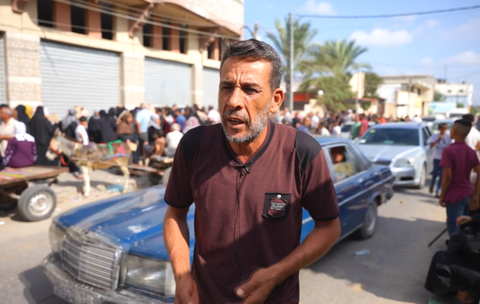
I used to wonder how people who receive WFP assistance survive with the scant supplies they have. Now I know first-hand – although I think no coping mechanism could help even the most resourceful through these days.
We made it through this past night. Nights are the scariest. We sleep together so we will all have the same fate.
The war is eating away everything we know: people, buildings, hopes for a better future. The non-stop sound of bombs falling over the city – skipping our heads by luck – drills in my brain, draining me of sleep and the last drop of sanity I am holding on to.
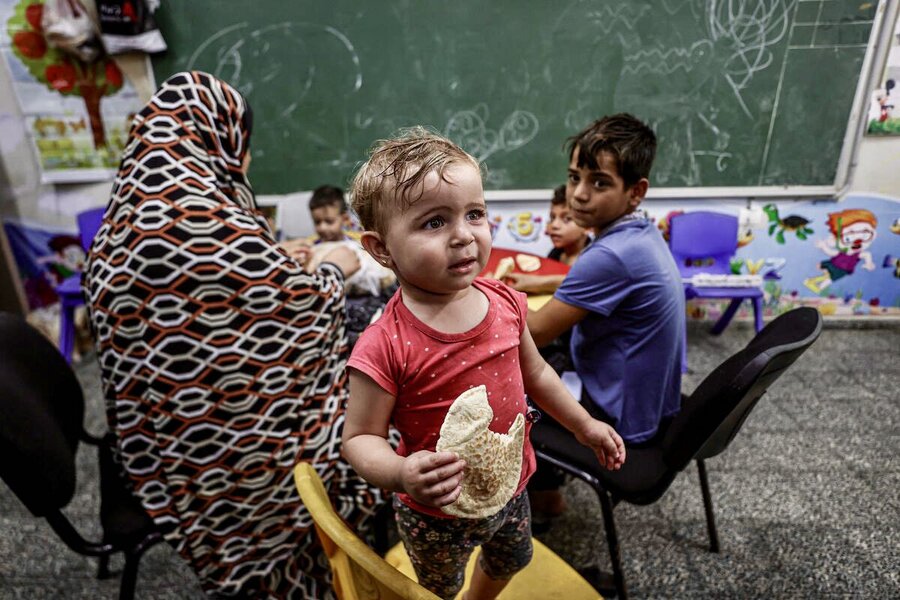
I’ve already lost seven family members and some friends; my university is demolished along with many of my favourite places. I am counting them all – I wish numbers never existed. There’s no time to mourn anyone or anything and barely enough time to check on the survivors.
For the past five days, I was disconnected from the world. Airstrikes destroyed the area where we lived. All the infrastructure has collapsed. Instead of the usual smell of grape leaves, we smell death.
Thursday 26 October
WFP, the organization I work for, has a mandate to fight world hunger. Truth be said, we are a resourceful team here...
When the war started, some people had to evacuate, after airstrikes bombed their homes. We decided to step in with ready-to-eat food and fresh bread. We supplied dozens of bakeries with wheat flour to keep them running.
During the first week of the conflict, our team was told to leave our homes and relocate to “safer” places. Four members have already lost their homes and everything else they own.
What did we do? We kept working.
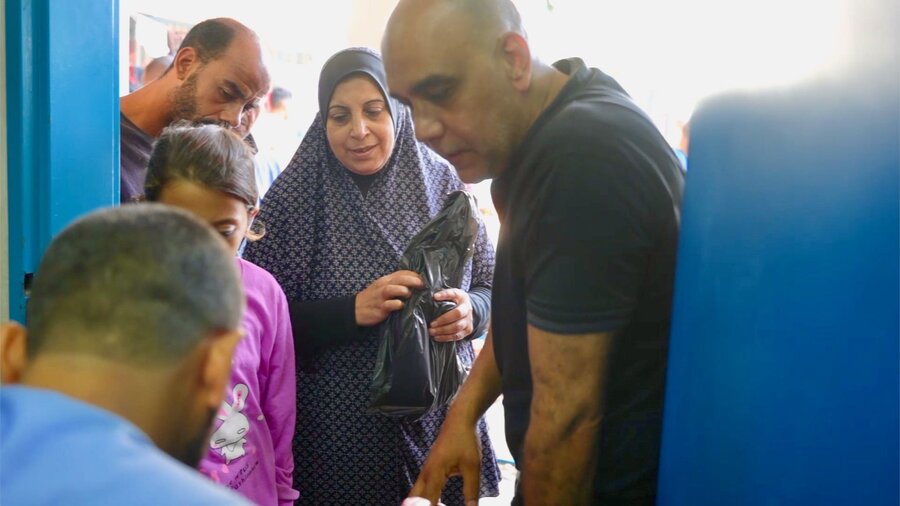
A few days later, bakeries were shelled, food became scarce, operations on the ground had become impossible, but everyone kept going. More remote support of every kind came in from WFP colleagues in Jerusalem, West Bank, and Cairo.
Only a couple of days after evacuating our homes, we lost our power. A couple of days after, our team had no water. Then we lost our internet connection and with that our links to the outside world.
We begin to feel an ugly sense of detachment from the world, the people we love and the people we serve. Even as we try to ensure hungry, conflict-affected people have food, we ourselves have barely anything to eat.
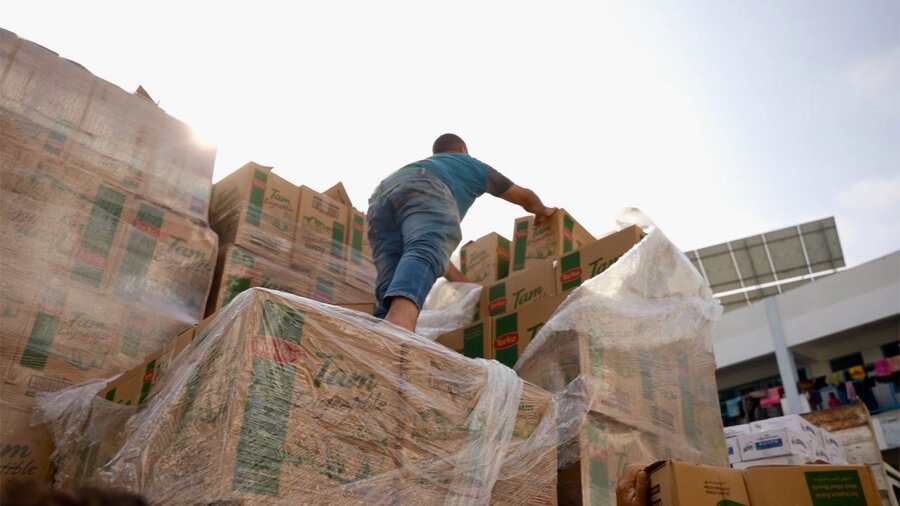
Before the war, WFP reported that more than 1 million Palestinians in Gaza were food insecure. Today, we, our families, and all of Gaza are food insecure.
I wish the lack of food and water was all there was to worry about. I wish we didn’t have to worry about our families, friends and loved ones, and our very survival.
I wish I could go back to boring office conversations. I wish I could go back to morning coffee breaks. I wish we would never have to mourn.
Sunday 29 October
I go to the roof and look around to try and guess where the dozens of airstrikes flashing in the sky might be falling. I make a mental list of the whereabouts of my friends, based on our last check-in. Some in the north, others in the south, and I am in the middle of a sea of worry and pain.
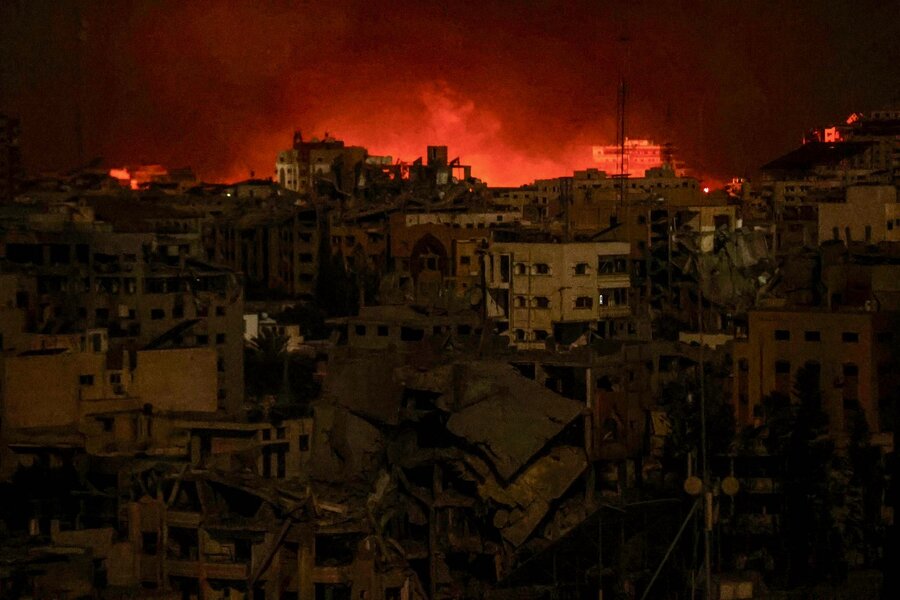
One airstrike in the north. Two. Three…ten. They get louder and closer. I lose count. I walk to the other side of the roof to look towards the south of the strip which has been marked as a safe zone. One bomb lands. Two. The sky lights up in red flames. Three...five…flames eat up God’s sky. Eight.
My brother calls me downstairs. The airstrikes are now so close that the gunpowder has blocked my sight.
After tonight, I know I might count more dead family and friends than my hands could possibly embrace.
I am sitting on the edge of my parents’ bed and wondering if I have a heart large enough for all this agony life is pushing my way, our way.
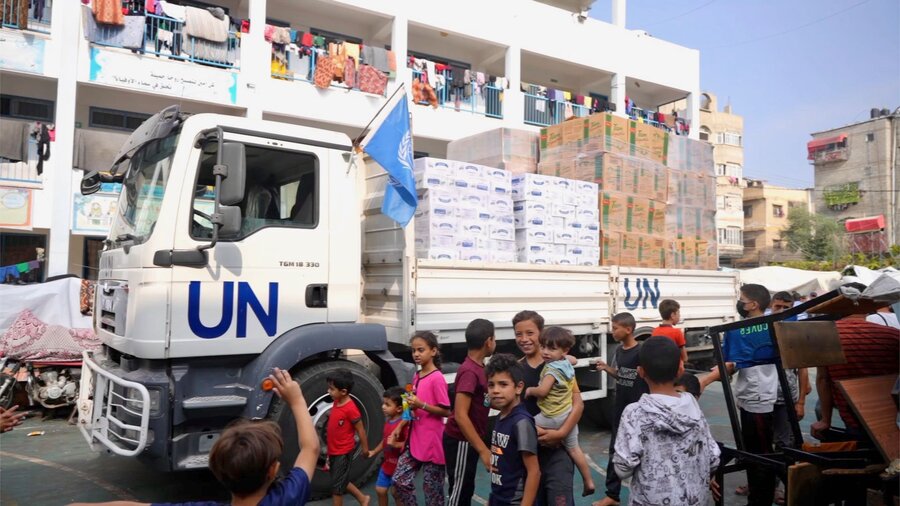
I have trained this heart to grow spacious enough for love, kindness and hope when they all come, knocking on its door looking for welcoming accommodation. I don’t know which of my heart’s rooms would fit a guest as burdensome and conspicuous as grief.
I read once that if grief knows a door, it never leaves. It becomes a fixture, you see, accustomed to your days, like bread and butter. There will be days when you walk to it, and others when you ignore that it’s sitting there at the table. No matter how you treat it, it’s there.
Today, I’ve let it in. “Welcome,” I tell grief. “Make yourself comfortable.”
My heart feels heavier than usual. My shoulders feel like they’re carrying mountains. A heavy guest indeed, but this weight shall always remind me, us, of the ones we love. The ones we lost. The ones who loved and lived life like it was eternal.
We are not safe. We are not sound.
WFP’s food and cash have reached over 630,000 people in Gaza and the West Bank to date. We need much more access, however, with at least 40 trucks of food supplies required to enter Gaza every day if we are to keep pace with the soaring needs.
